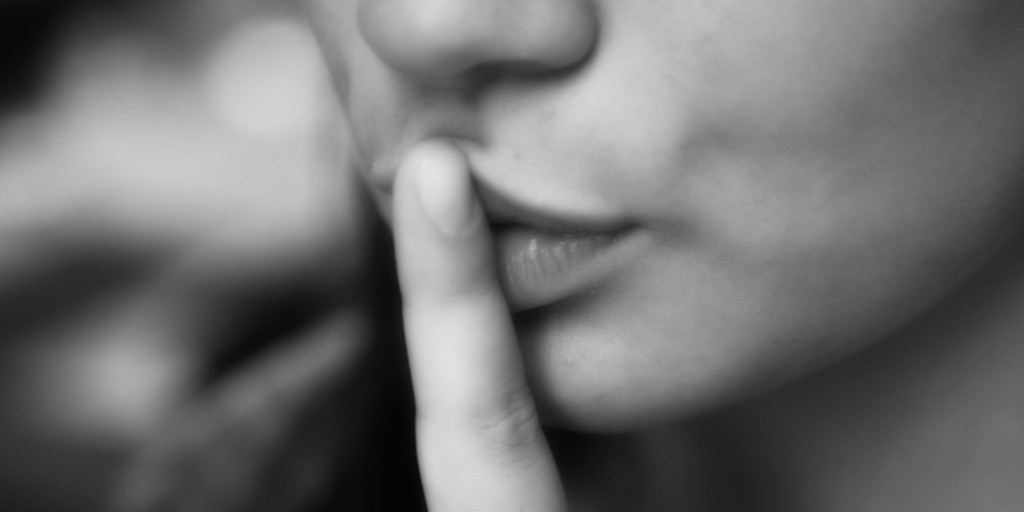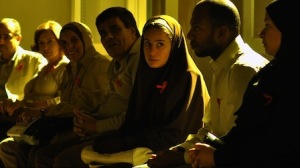My Two Cents: Honor Above All

After months of hearing everyone rave about Segn El Nessa, I finally tuned in (Thanks Rula!). To say that I was blown away would be the understatement of the century. It was phenomenal. I was glued to my television for an entire weekend in awe of the acting, the storylines, and more importantly, the painful truth of it all.
If I had to critique anything, it would be the ridiculous English used and the representation of Egypt’s high society. As a native English speaker, I have never in my life heard anyone say “Uff, oxygen” or start every sentence with “oh nooo”. Most of the English phrases were laughable, as they barely made sense or were used completely out of context. Educated Egyptians can speak English pretty well, so why not positively represent that?
Regarding high society, while I have seen my fair share of outrageously snobbish behavior in the years I lived in Egypt, I have never seen anyone talk so absurdly. The line about the $10,000 cheap Berkin bag was nauseating. Let’s not be ridiculous now. The condescending tone and the lavish parties may apply, but everything else seemed pretty exaggerated.
That being said, there was one element that really struck a chord with me: the issue of honor. Honestly, everything in the show got to me, but the theme of “honor above all” was overwhelming.
Let’s start with Dalal, the poor girl who worked in a clothing shop and engaged in non-sexual prostitution on the side; basically, an escort to flirt and drink with paying customers without sexual favors. Frankly, I didn’t know you could get paid to party and drink (if that’s the case, the rest of Cairo should be billionaires). After getting caught, she was shunned by both her mother and husband.
“You have dishonored us, how will your sisters walk the streets and get married? You’ve destroyed us. You’re dead to me,” her mother said as she spit on her. Dalal tried to make amends after an attempted suicide and her release from prison, only to be thrown to the streets by her mother and ex-husband.
Her mother placed her reputation above the life of her own flesh and blood. Was she at fault for associating herself with illegal activities? Yes. But is that worth disowning family?
Moving on to Hayat, the mentally ill character. She was harassed and ridiculed for her behavior by her family. “Fada7teena!” (You’ve embarrassed us!), her husband would shout. The family’s reputation came first, considering that mental illness is a stigma in society.
Honor killing has been an issue in the Middle East, based purely on conservative tribal traditions. While it is not as common in modern Arab society, the issue of honor is a predominant factor in familial decisions.
In Fatma Khafagy’s paper on Honor Killing for the UN Division for the Advancement of Women, she states, “Honor crimes refer to the murder of a woman by her male family members for a perceived violation of the social norms of sexuality, or a suspicion of women having transgressed the limits of social behavior imposed by traditions. This includes seeing or meeting a man even if this is only a suspicion or gossip.
Egyptian films represent honor killing as part of highly valued and well-respected tradition. Family honor is shown as dependent on the sexual conformity of its female family members.”
As Khafagy said, an Arab woman’s honor depends predominantly on her sexual behavior above all, but that doesn’t mean honor doesn’t apply to men. Consider the tarnished family name that comes with homosexuality, hardcore drug abuse (when caught), or any suspicion of “rugula”, or masculinity.

Note the Egyptian film Asmaa, where the main character contracts AIDS from her husband, but refuses treatment so as not to expose her husband. “The film is not about AIDS, but rather the battle against social prejudice in Egypt… and about love, courage, overcoming fear, and fighting for personal rights,” says Fayrouz Karawya in her article about the film.
I was raised with the importance of honor instilled by my family, and I truly value it, but the way I see it, living with honor should be for you, not for strangers. The phrase “What will people say?” may be one of the most common in every Egyptian household.
I say, “Who cares?” but my mom says that’s my American side speaking. People will always talk. Always. In the words of Dita Von Teese: “You can be the ripest, juiciest peach in the world, and there’s still going to be somebody who hates peaches.”
A woman may be scared to get a divorce or break off an engagement in fear of what people may say, putting her happiness second to society. A girl on the Corniche will ask her boyfriend not to kiss her, not because she doesn’t want to be kissed – but because she doesn’t want anyone to see. How can you place honor above all when it’s only based on whether or not you get caught? That’s not honor, that’s lying.
I’d love to say that I don’t care what people say, but then I would be lying. I just couldn’t help but wonder throughout the show, has honor become more important than family in the Arab world? Is reputation more valuable than your loved one’s well being?
I don’t have the answers. Do you?
WE SAID THIS: Don’t miss “The Seven Types of Women You’ll Find in Egyptian Women’s Prison“
